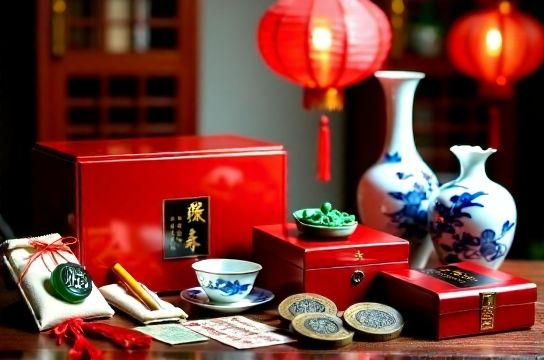Meaningful Unique Chinese Gifts Sharing Culture
- 时间:
- 浏览:51
- 来源:OrientDeck
If you're on the hunt for gifts that aren’t just beautiful but also rich in history and soul, look no further than traditional Chinese gifts. These aren’t your average souvenirs—they’re cultural storytellers wrapped in silk, carved in jade, or painted with calligraphy. Whether you’re shopping for a loved one or representing China’s heritage at a corporate event, authentic Chinese gifts carry meaning that transcends time.

Why Choose Traditional Chinese Gifts?
Chinese culture values symbolism, harmony, and intention—three things that shine through in its gift-giving traditions. Unlike mass-produced items, handmade or culturally significant Chinese presents reflect thoughtfulness and respect. From red envelope customs to lucky number symbolism, every detail has purpose.
Top 5 Meaningful Chinese Gifts
Here are five standout gifts that blend beauty, tradition, and deep cultural roots:
| Gift | Symbolism | Average Price (USD) | Best For |
|---|---|---|---|
| Jade Pendant | Protection, longevity, purity | $50–$300 | Birthdays, anniversaries |
| Tea Set (Pu'er or Oolong) | Harmony, hospitality | $40–$200 | Diplomatic gifts, housewarming |
| Calligraphy Art | Wisdom, elegance | $30–$150 | Office decor, mentors |
| Silk Scarf (Suzhou style) | Luxury, grace | $60–$120 | Women’s gifts, fashion lovers |
| Chinese Knot (Red) | Good luck, unity | $15–$50 | Festivals, weddings |
As you can see, these gifts aren’t just about aesthetics—they speak a language of their own. Take jade, for example: revered since the Neolithic era, it’s believed to guard the wearer and promote inner peace. Or consider tea—a ritualistic brew that’s been central to Chinese life for over 5,000 years.
Cultural Nuances Matter
Gifting in China isn’t just about what you give—it’s how and when. Here are a few tips to get it right:
- Color counts: Red = lucky; white = mourning. Avoid clocks or umbrellas—they symbolize “time running out” or “separation.”
- Present with both hands: It shows respect.
- Refuse once or twice: In Chinese etiquette, modestly declining a gift initially is polite before accepting.
Where to Buy Authentic Pieces
Not all ‘Chinese’ gifts are truly authentic. To avoid cheap imitations, shop from trusted sources like:
- Beijing’s Panjiayuan Market – A treasure trove of antiques and crafts
- Suzhou Silk Museums – For premium silk goods
- Online platforms like Alibaba (verified suppliers) – Great for bulk or corporate orders
Bonus tip: Look for certifications like “National Geographical Indication” for teas or “Intangible Cultural Heritage” labels on crafts.
Final Thoughts
In a world of fast fashion and fleeting trends, meaningful Chinese gifts stand apart. They’re not just presents—they’re heirlooms in the making, carrying wishes for health, prosperity, and connection. So next time you want to make an impression, go beyond the ordinary. Choose something with history, heart, and harmony.